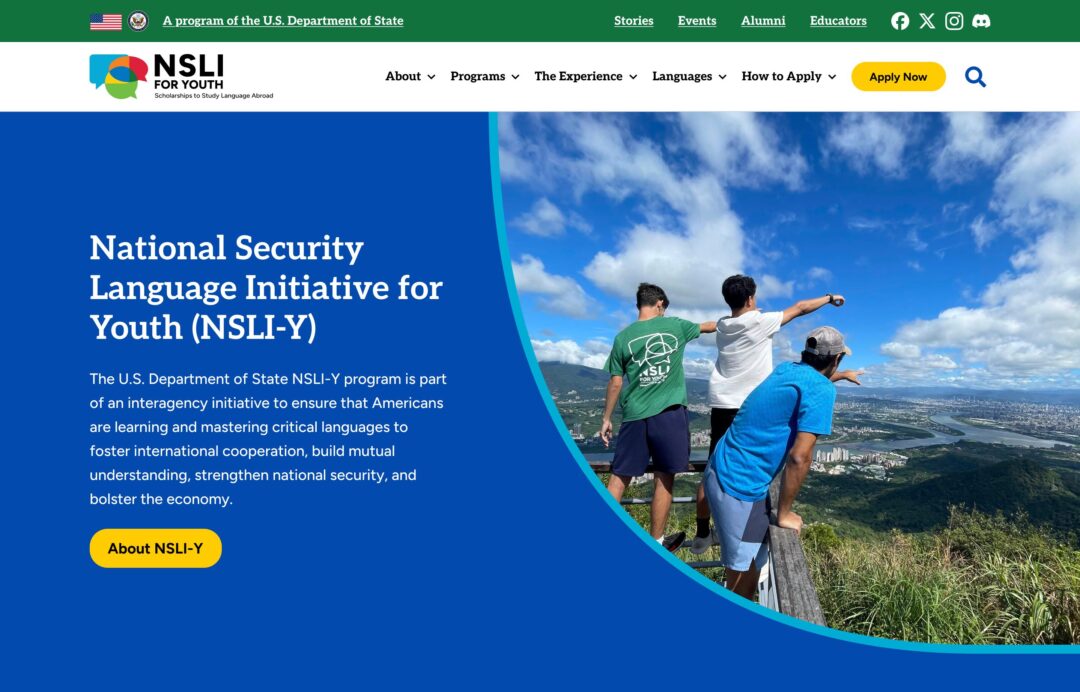American Civil Liberties Union
A WordPress core codebase, parent theme, and atomic design system that brings consistency to 50+ unique websites.
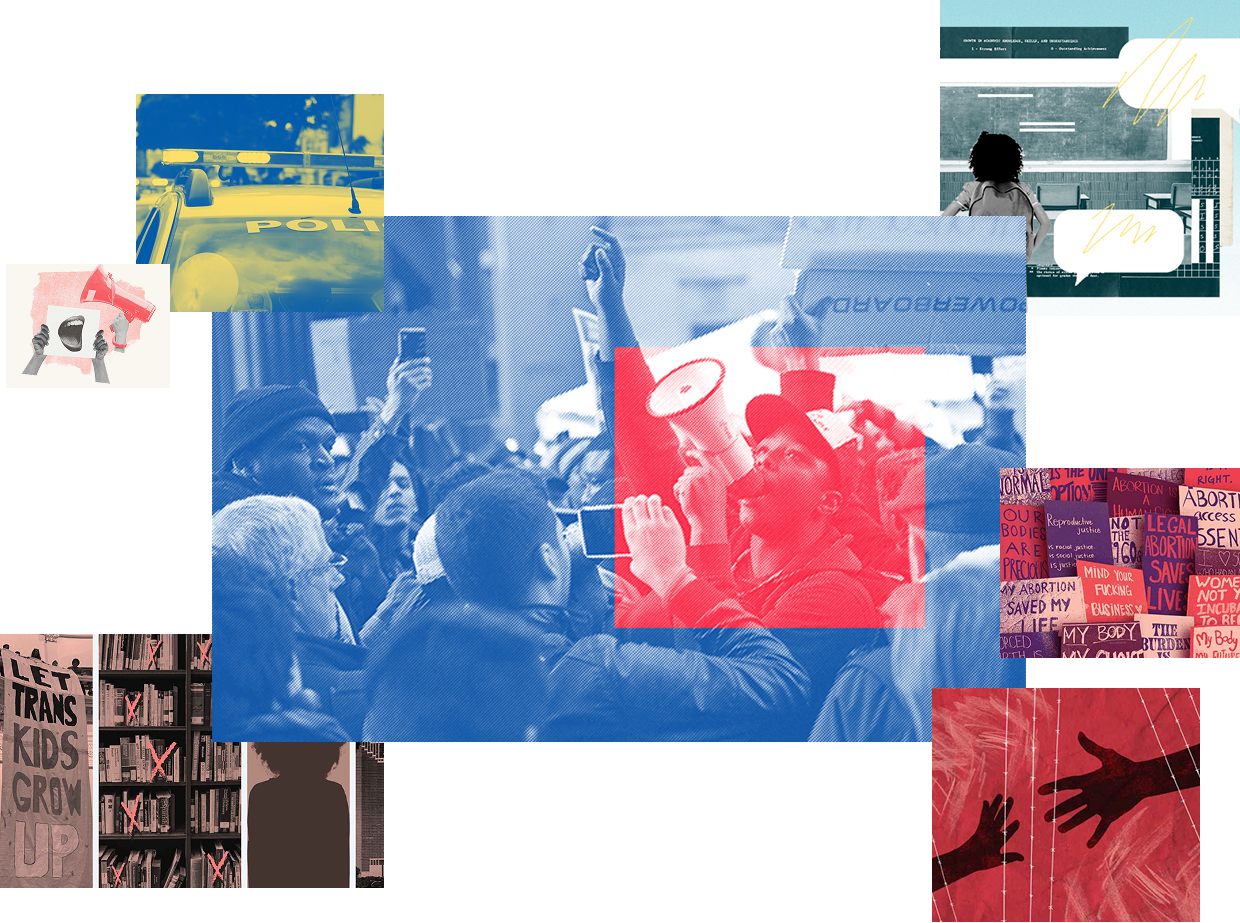
The challenge: design a scalable system for 50+ websites.
The ACLU came to ThinkShout with a recently redesigned national website built on WordPress, but more than 50 of their affiliate sites still running on Drupal, each with varying degrees of alignment to the national brand.
Our challenge was to create a flexible, accessible WordPress system that affiliates could easily adopt — empowering each state to launch a modern site tailored to local needs while staying visually and structurally consistent with the ACLU’s national presence.
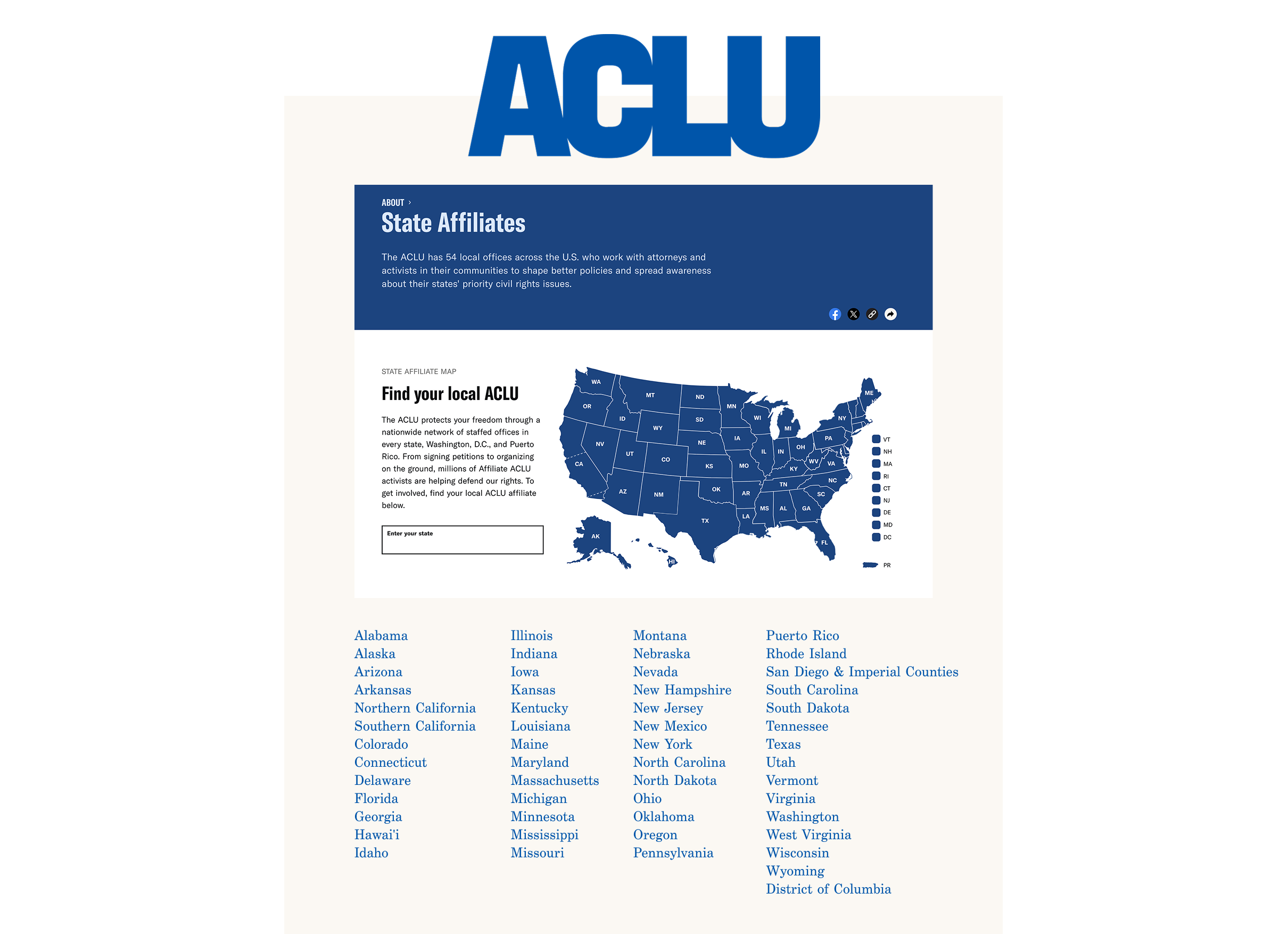
Building an atomic design system from the ground up.
The national site had a strong visual identity, but it wasn’t supported by a structured design system. There were no consistent rules governing how components looked or functioned, which would make it difficult to translate, as-is, into a scalable solution for affiliates.
To solve this, we began with a deep design audit where we cataloged every visual element — buttons, typography, layout patterns, blocks — across the national and affiliate sites. Together with the ACLU team, we identified which components would serve as our source of truth for the standardized system going forward. With those patterns defined, we rebuilt the design system using a consistent structure and defined naming conventions modeled on Tailwind CSS, laying the groundwork for a scalable, robust component library.
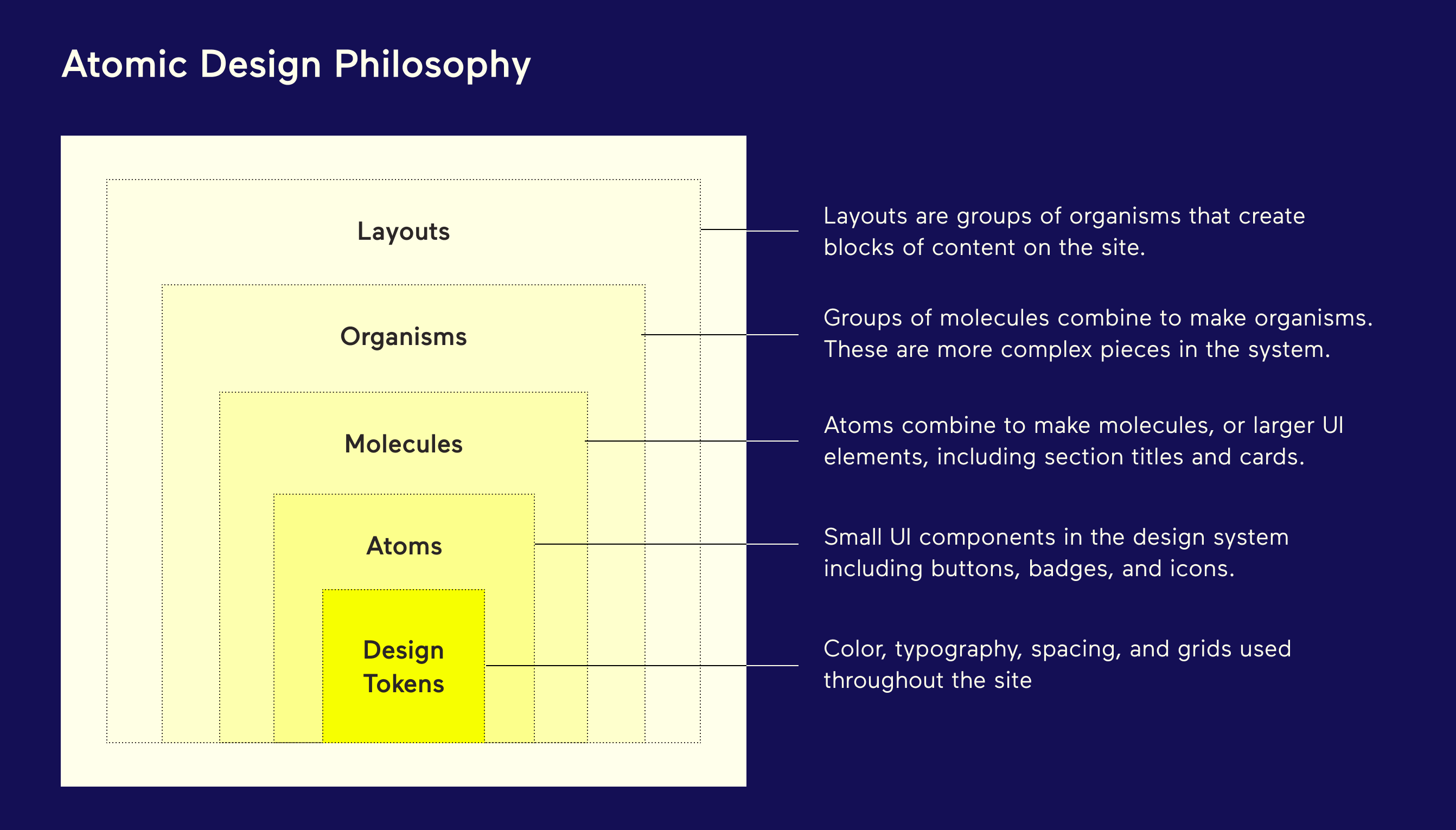
A living style guide for affiliates.
Once the design system was established, we translated it into a flexible, living style guide designed to meet the wide-ranging needs of the ACLU National team and ACLU affiliates. The goal wasn’t to recreate the national site in miniature, but to give affiliates a shared design language that was clearly part of the same family.
Built in partnership with both the ACLU’s design and development teams, every component in the system is fully documented, reusable, and easy to extend. The living style guide, built in code, makes it simple to roll out accessibility updates or add new features, ensuring long-term maintainability across all sites.
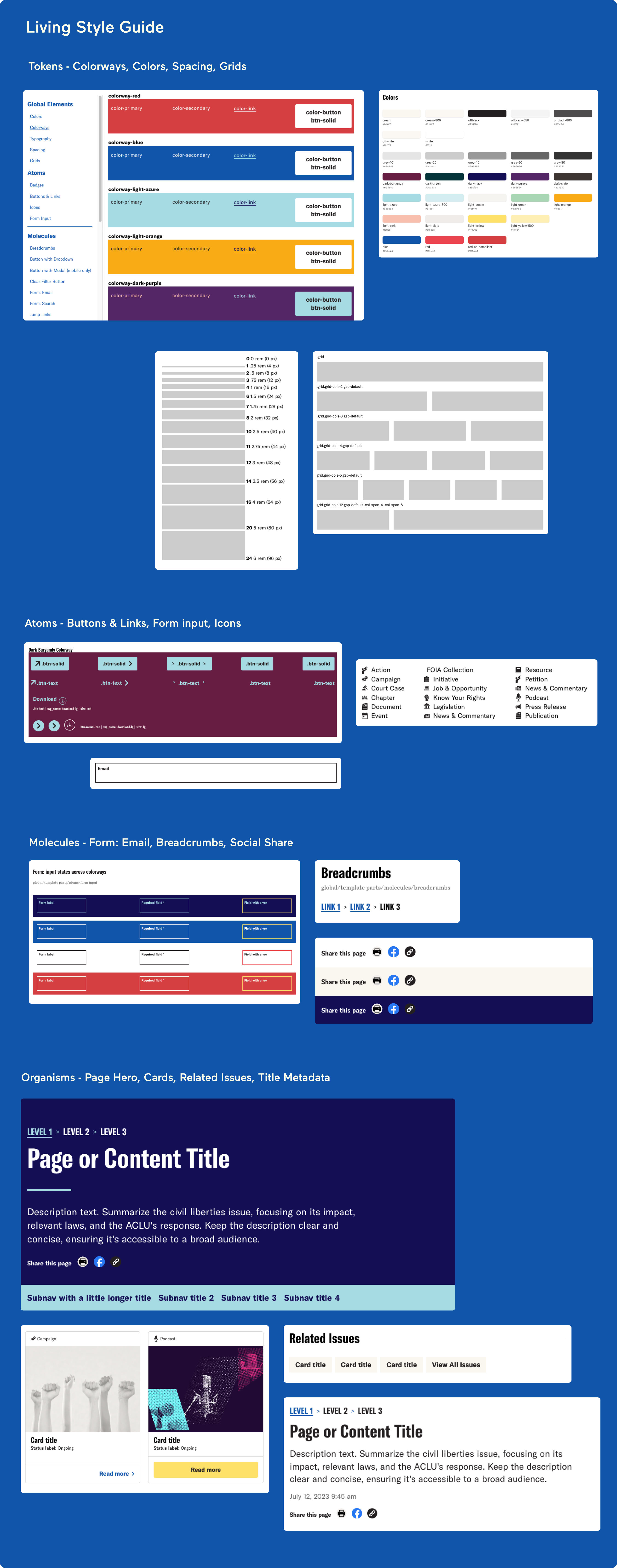
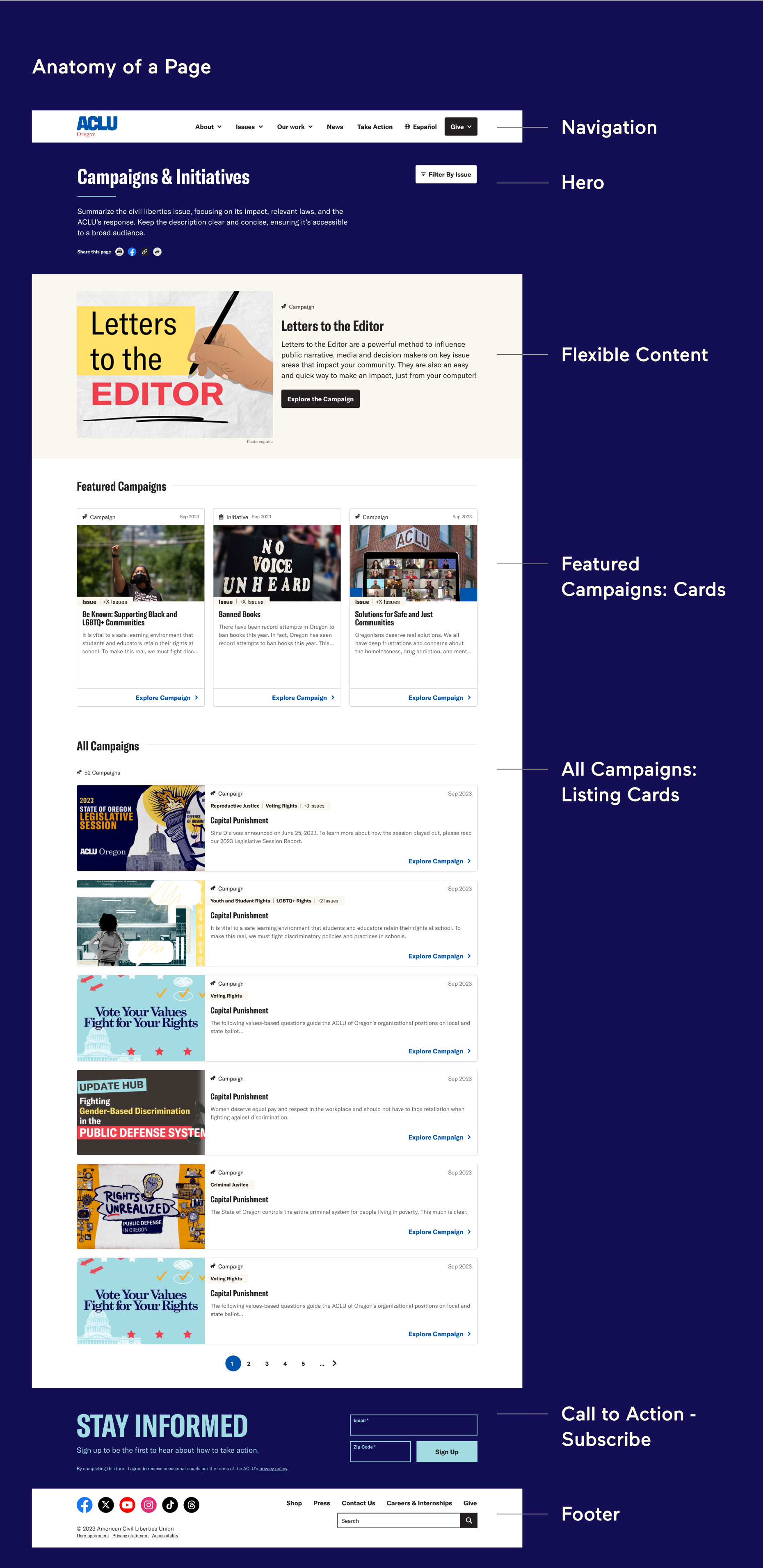
Migration and beyond.
Behind the scenes, this required significant DevOps orchestration. We modernized the ACLU’s legacy Drupal 7 scripts, introduced continuous integration workflows, and built deployment pipelines that allow updates to flow from one source into multiple downstream repositories. Throughout, we prioritized the editorial experience, ensuring site admins could create and manage content through a clean, intuitive backend without risking the integrity of the design system.
To support migration, we developed tooling and documentation that made it easy for affiliates to transition from older platforms, and architected an automated process that includes intelligent conversion scripts, quality control, and room for human oversight where needed.
The first affiliate site built on the new system has launched, with more to follow. With a unified architecture, living design system, and scalable editorial tooling in place, the ACLU now has the infrastructure to support a consistent, flexible digital presence across all 50 states — designed for impact, built to last.
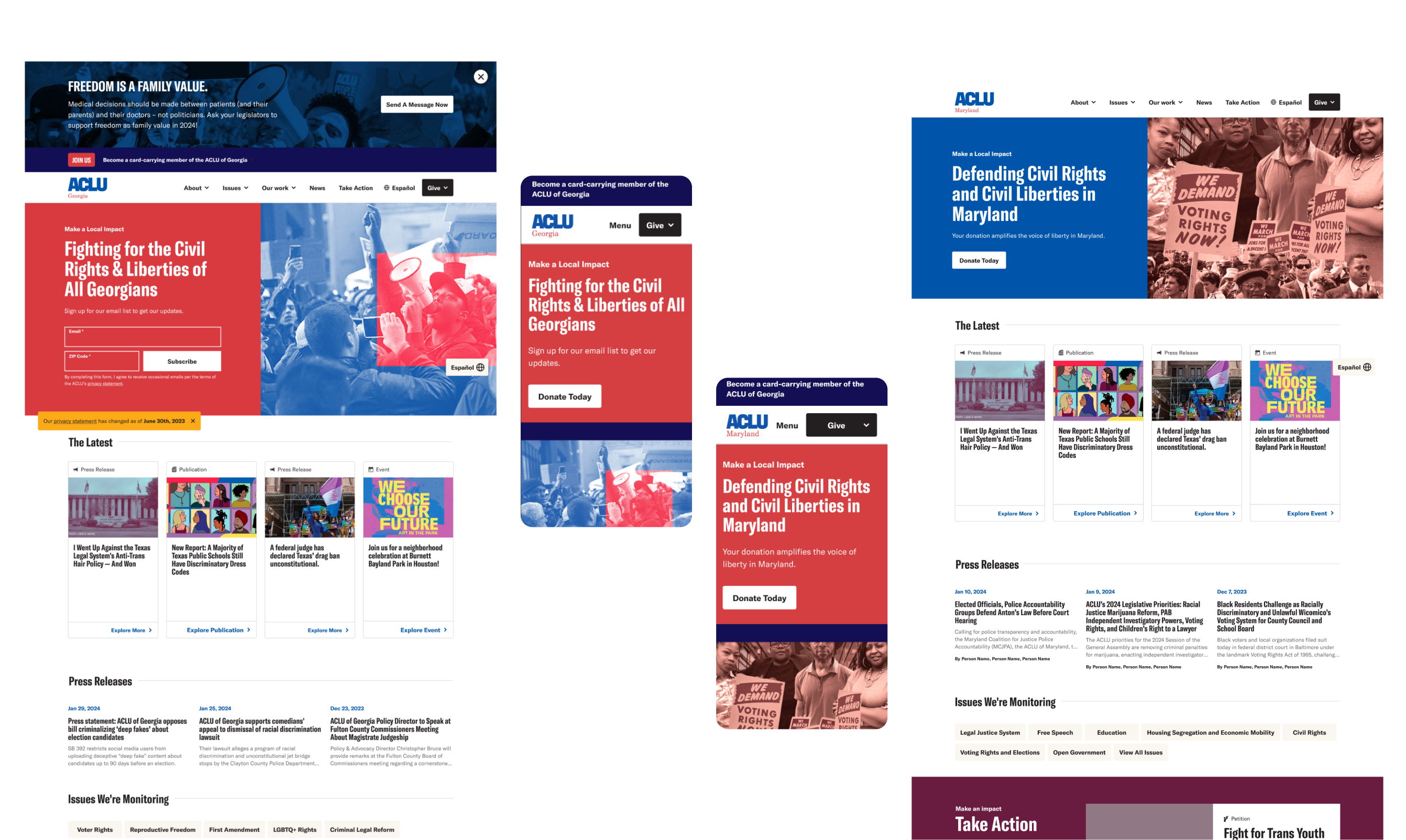
Explore More

